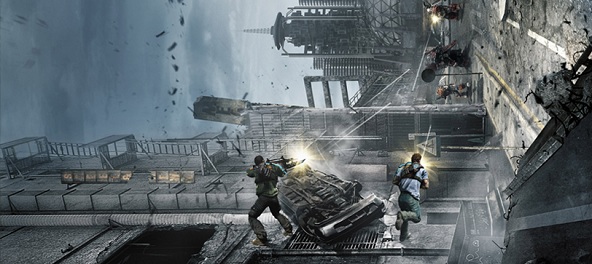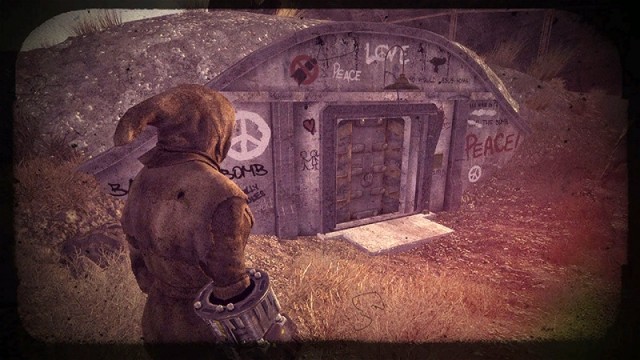

Even hardcore fans mostly agree, if Beyond Earth taught us anything, it’s that you’ve got to go further than merely another solar system to escape the shadow of Alpha Centauri. With that in mind, Rising Tide is a smartly put together expansion. It doesn’t make Beyond Earth the game that some of us wanted, especially in terms of finding its own groove instead of just being Civ in space, but it does at least put its focus on the biggest criticisms instead of simply bolting on a few more toys and random cool features. It’s closer. Not there, but a good deal closer.
For me, one of the changes I most appreciate is the reworking of Affinities. In the original Beyond Earth, these had your society developing down one of three paths—Purity, Supremacy or Harmony. I personally loathed this system, not for the core mechanical idea, but because it philosophically felt less like charting a future for humanity than signing it up to one of three dogmatic space cults, complete with silly space robes. Rising Tide allows for Hybrid Affinities, mixing and matching them. This opens up new options, but more than that, it feels endlessly more appropriate. Why wouldn’t you combine technology and aliens? It’s just slightly morbid common sense.
This is essentially Rising Tide’s approach across the board: big changes, important changes, but not necessarily dramatic changes that completely overhaul what came before. It’s a more appropriate name than it might sound, and not really referring to its new aquatic cities. They’re fun to play with, both in their new mechanic of acquiring territory by moving around the ocean, and a rare example of something feeling like future tech instead of just modern military equipment with a chrome finish. They’re still one of the least important fundamental changes Rising Tide makes.
Other similar offerings include four new factions (one sea based, totally unlike Alien Crossfire, one spy based, totally unlike Alien Crossfire, and two others focused on diplomacy and production respectively). Worlds are now peppered with Artifacts that can be combined in groups of three to unlock bonuses, and brand new Marvels—huge alien structures that start quests for everyone once discovered. Neither cancels out the basic problem of these worlds usually feeling like Earth if our canyons were randomly full of melted cheese (and despite two new biomes, Frigid and Primeval, Fungal remains the only really alien feeling one), but they’re decent low impact additions to the main game that contribute to the feel of a series finally heading in the right direction.
That direction being Alpha Centauri, it’s no surprise that the diplomacy section has seen the biggest overhaul. The new system has two basic goals, to make things more transparent, and to give the leaders more personality. Sorry, typo. I mean any personality, rather than them being just a load of cardboard cutouts. Unfortunately, while they do have more than they did, Beyond Earth continues being more comfortable with the numbers side of humanity than its humans.
The more mechanical side works better. Each faction now has a Fear and Respect bar, the first based on your strength and the latter based on how your actions mesh with their philosophies, such as worrying about your peoples’ health. Everyone also now has Traits that offer direct upgrades, and advantages that others can buy into using the new Diplomatic Capital resource—a stipend each turn in exchange for a boost. You can have up to four in play, and swap them out, as well as spend DC to purchase units and buildings outright. Combined, all this opens up a much more interesting diplomatic metagame of mutual favours and reasons to side with specific leaders, without ruling out making deals with assorted devils if the need arises. It’s also now much easier to read them, and see when you’re clashing with someone or they’re likely to bail on a deal.
Rising Tide doesn’t turn Beyond Earth into a whole new game. Expect that, and you’ll be disappointed. It does however move it closer to what it should have been, with its understanding of some of the big problems helping to at least soften the blow of their lingering disappointment first time around. It’s the expansion it needed to do first, both in terms of building on the game if you are in the mood for more, and showing that the series has the right course in mind.
THE VERDICT



 Witcher 3: Hearts of Stone - Avid Collector Quest Guide
Witcher 3: Hearts of Stone - Avid Collector Quest Guide Another World: 20th Anniversary Edition Complete Video Walkthrough for All Chapters
Another World: 20th Anniversary Edition Complete Video Walkthrough for All Chapters 7 Ways The Wii U Is Better Than The Xbox One And PS4
7 Ways The Wii U Is Better Than The Xbox One And PS4 Atelier Shallie: Alchemists of the Dusk Sea Wiki – Everything you need to know about the game .
Atelier Shallie: Alchemists of the Dusk Sea Wiki – Everything you need to know about the game . Tomb Raider: Collectible Challenges Guide
Tomb Raider: Collectible Challenges Guide